Marguerite Bennett's Blog, page 43
August 9, 2017
tastefullyoffensive:(via redditmeman)
bexlogic:
thempress:
People look down on McDonald’s employees but fail to realize that if all...
People look down on McDonald’s employees but fail to realize that if all these folks left McDonald’s and pursued “better careers” your ass wouldn’t be able to get a McDouble with an Oreo McFlurry at 3am.
You can’t demand a service while simultaneously degrading those who provide it for you.
You can’t demand a service while simultaneously degrading those who provide it for you.
tarastarr1:
thecoggs:
So apparently last year the National Park Service in the US dropped an over...
So apparently last year the National Park Service in the US dropped an over 1200 page study of LGBTQ American History as part of their Who We Are program which includes studies on African-American history, Latino history, and Indigenous history.
Like. This is awesome. But also it feels very surreal that maybe one of the most comprehensive examinations of LGBTQ history in America (it covers sports! art! race! historical sites! health! cities!) was just casually done by the parks service.
This is really great??
Chapter 1: Prologue: Why LGBTQ Historic Sites Matter by Mark Meinke
Chapter 2: Introduction to the LGBTQ Heritage Initiative Theme Study by Megan E. Springate
Chapter 3: Introduction to Lesbian, Gay, Bisexual, Transgender, and Queer (LGBTQ) History in the United States by Leisa Meyer and Helis Sikk
Chapter 4: The History of Queer History: One Hundred Years of the Search for Shared Heritage by Gerard Koskovich
Chapter 5: The Preservation of LGBTQ Heritage by Gail Dubrow
Chapter 6: LGBTQ Archeological Context by Megan E. Springate
Chapter 7: A Note about Intersectionality by Megan E. Springate
Chapter 8: Making Bisexuals Visible by Loraine Hutchins
Chapter 9: Sexual and Gender Diversity in Native America and the Pacific Islands by Will Roscoe
Chapter 10: Transgender History in the US and the Places that Matter by Susan Stryker
Chapter 11: Breathing Fire: Remembering Asian Pacific American Activism in Queer History by Amy Sueyoshi
Chapter 12: Latina/o Gender and Sexuality by Deena J. González and Ellie D. Hernandez
Chapter 13: by Jeffrey A. Harris
Chapter 14: LGBTQ Spaces and Places by Jen Jack Gieseking
Chapter 15: Making Community: The Places and Spaces of LGBTQ Collective Identity Formation by Christina B. Hanhardt
Chapter 16: LGBTQ Business and Commerce by David K. Johnson
Chapter 17: Sex, Love, and Relationships by Tracy Baim
Chapter 18: LGBTQ Civil Rights in America by Megan E. Springate
Chapter 19: Historical Landmarks and Landscapes of LGBTQ Law by Marc Stein
Chapter 20: LGBTQ Military Service by Steve Estes
Chapter 21: Struggles in Body and Spirit: Religion and LGBTQ People in US History by Drew Bourn
Chapter 22: LGBTQ and Health by Katie Batza
Chapter 23: LGBTQ Art and Artists by Tara Burk
Chapter 24: LGBTQ Sport and Leisure by Katherine Schweighofer
Chapter 25: San Francisco: Placing LGBTQ Histories in the City by the Bay by Donna J. Graves and Shayne E. Watson
Chapter 26: Preservation of LGBTQ Historic & Cultural Sites – A New York City Perspective by Jay Shockley
Chapter 27: Locating Miami’s Queer History by Julio Capó, Jr.
Chapter 28: Queerest Little City in the World: LGBTQ Reno by John Jeffrey Auer IV
Chapter 29: Chicago: Queer Histories at the Crossroads of America by Jessica Herczeg-Konecny
Chapter 30: Nominating LGBTQ Places to the National Register of Historic Places and as National Historic Landmarks: An Introduction by Megan E. Springate and Caridad de la Vega
Chapter 31: Interpreting LGBTQ Historic Sites by Susan Ferentinos
Chapter 32: Teaching LGBTQ History and Heritage by Leila J. Rupp
ghostkitten69:
screaming-towards-apotheosis:
thexlastxjedi:
lu...
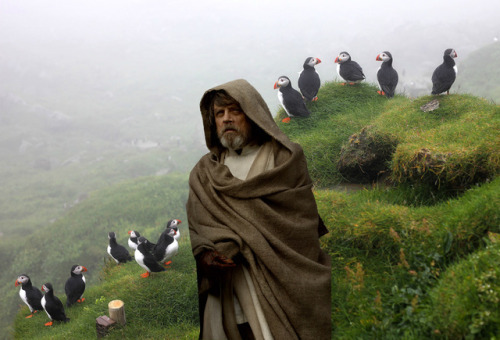
lukeskywalkersdepressionsnuggie:
leaked set photo from the last jedi
THANK YOU FOR DOING THE LORD’S WORK AND LEAKING THIS TO US.
day 1348 the birds still think I am one of them
#no you don’t understand#i went to skellig island years and years ago#long before it was ever in these movies#and the second i saw the island in the force awakens#i thought ‘what did they do to the puffins?’#because friends let me tell you#when i visited this island way back when#the entire fucking thing was covered tip to toe in puffins#nests of puffins in the rocks#puffins shitting from the sky#puffins swimming in the sea#it
was a true island of the birds and not a damn person could hope to get a
panorama without approximately 10000+ birds photobombing#how did disney edit out all the puffins#who was the puffin intern#important questions that need answers
I’m stealing @humming-fly ‘s tags because I’m not original
"I believe that there are people who truly dislike romantic gestures, in the same way that there are..."
I believe that there are people who truly dislike romantic gestures, in the same way that there are people who truly dislike sweets. And it’s certainly true that a lot of what passes for “romance” in our broad cultural definition—the Jumbotron proposal, the bed covered in rose petals—has been neatly split from genuine emotion, like a painted eggshell blown clear of its guts. It’s a charade of romance, a mask we give straight men to wear when they’re frightened or confused by showing their naked face. I truly did not want that, and I still don’t, and I never will. Being dragooned into acting as a partner in these romantic pageants is like having one of those dreams where you’re hauled up unprepared on stage.
But attentiveness, consideration, compliments, small and large kindnesses, feeling truly loved, having someone put you first while you put them first because you’re in cahoots to make each other’s lives easier and better: most people do like that, when it’s thoughtful and sincere. It’s here, more than in the big gestures, that romance lives: in being actively caring and thoughtful, in a way that is reciprocal but not transactional.
And yet, for most of my life, I never would have asked for or expected such a thing. Many women wouldn’t, even the ones who secretly or not-so-secretly pine to be treated like a princess. It’s one thing to fantasize about a perfect proposal or an expensive gift; that’s high-maintenance, sure, but it’s also par for the course. It’s asking something from a man, but primarily it’s asking him to step into an already-choreographed mating dance. But asking to be thought of, understood, prioritized: this is a request so deep it is almost unfathomable. It’s a voracious request, the demand of the attention whore.
Women talk ourselves into needing less, because we’re not supposed to want more—or because we know we won’t get more, and we don’t want to feel unsatisfied. We reduce our needs for food, for space, for respect, for help, for love and affection, for being noticed, according to what we think we’re allowed to have. Sometimes we tell ourselves that we can live without it, even that we don’t want it. But it’s not that we don’t want more. It’s that we don’t want to be seen asking for it. And when it comes to romance, women always, always need to ask.
”-
Jess Zimmermann, Hunger Makes Me (via oaluz)
#the architecture of love is so much smaller and larger than romance tropes (notcaycepollard)
pine-and-cavill:
“To draw out that humor, Jenkins gave Pine and...
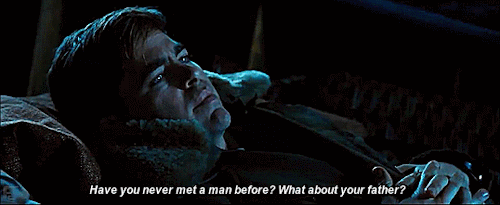
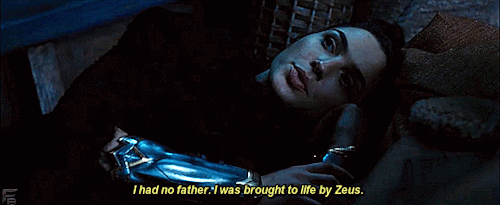

“To draw out that humor, Jenkins gave Pine and Gadot a lot of opportunity to improvise. In one scene (boat scene) the two share a boat ride back to man’s world where they reveal their initial chemistry — and provide a lot of hints to the overall tone of the film. Gadot and Pine ad-libbed the entire scene. Pine loved it, especially since it highlighted Gadot’s surprisingly good improve skills.
“She has to be the straight woman, that’s the harder part,” Pine says. “She’s delivering lines like ‘My father is Zeus’ — s— that is just so ridiculous. And she has to say it with a straight face, with a certain amount of innocence and earnestness. I get to react like any human being would to hearing something as ridiculous as that. So I had easy.”
- Entertainment Weekly.
THIS JUST MADE THIS SCENE 10x BETTER.
did-you-kno:Two cat brothers who were separately
adopted got...
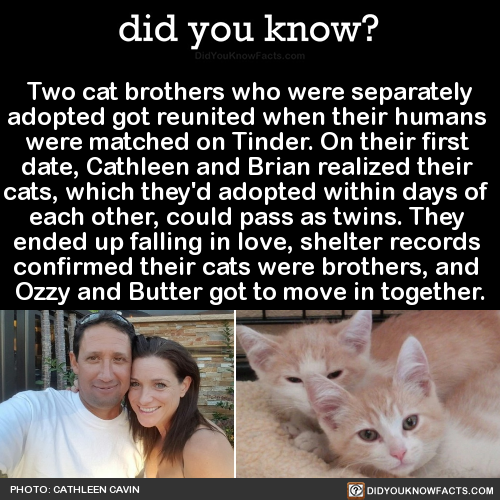
Two cat brothers who were separately
adopted got reunited when their humans
were matched on Tinder. On their first
date, Cathleen and Brian realized their
cats, which they’d adopted within days of
each other, could pass as twins. They
ended up falling in love, shelter records
confirmed their cats were brothers, and
Ozzy and Butter got to move in together.
Source
August 8, 2017
pardonmewhileipanic:
dupionianddamask:
This salted my fields...

This salted my fields and stole my only milking cow
you ever read something that makes you so dry you might never have sex again?
nrgburst:
I need to talk about this scene because it’s so...
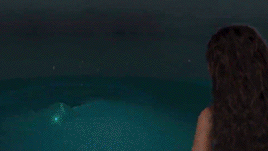
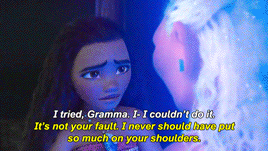
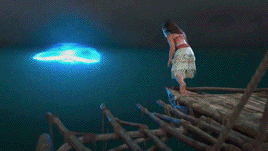
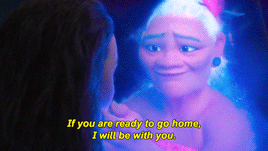
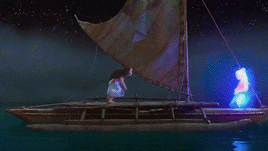
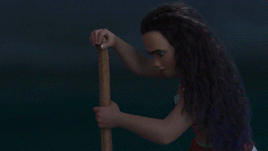
I need to talk about this scene because it’s so different from the typical way pep talks go.
Moana has just suffered a tremendous defeat and been abandoned by Maui, her demi-god ally. She’s understandably upset- the heart of Te Fiti has to be restored or decay will consume her island. And yet she’s just one teenage girl on a damaged canoe- how is she supposed to face down Te Ka, actual vengeful Lava monster?
Her fairy godmother grandmother’s spirit doesn’t come in with a magical fix, insist her doubts are baseless and/or bluster that she should just get on with the impossible. She comforts her and tells her it was too big a task to expect of her (all true!) and then tells her it’s okay to give up, that she will be there with unconditional support to help her go home, no guilt or shame.
THIS. NEVER. HAPPENS. IN. STORIES.
And it should. “Encouragement” is so often a lot like bullying in narratives, even towards characters that are children. “I know you have it in you (even though you were just soundly beaten)! Now get back out there (even though you’re miserable)!”
Instead, Gramma waits until Moana herself realizes that she’s not ready to give up, through self reflection. She wasn’t there to insist that Moana “suck it up”, but simply to “remind [her] that come what may, [she] know[s] the way”.
That is awesome.
napoleanbonafarte:
markv5:
Стучать не учили? Здесь вообще то...

Стучать не учили? Здесь вообще то занято!
“Did no one teach you to knock? This is occupied!”
Marguerite Bennett's Blog
- Marguerite Bennett's profile
- 366 followers




